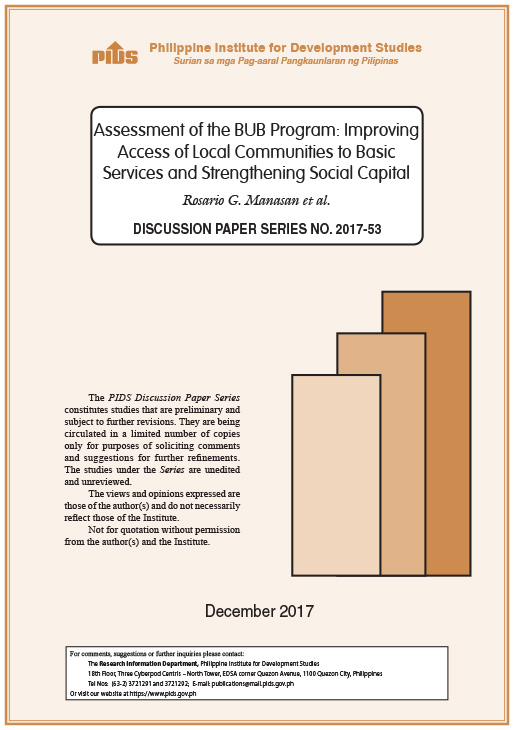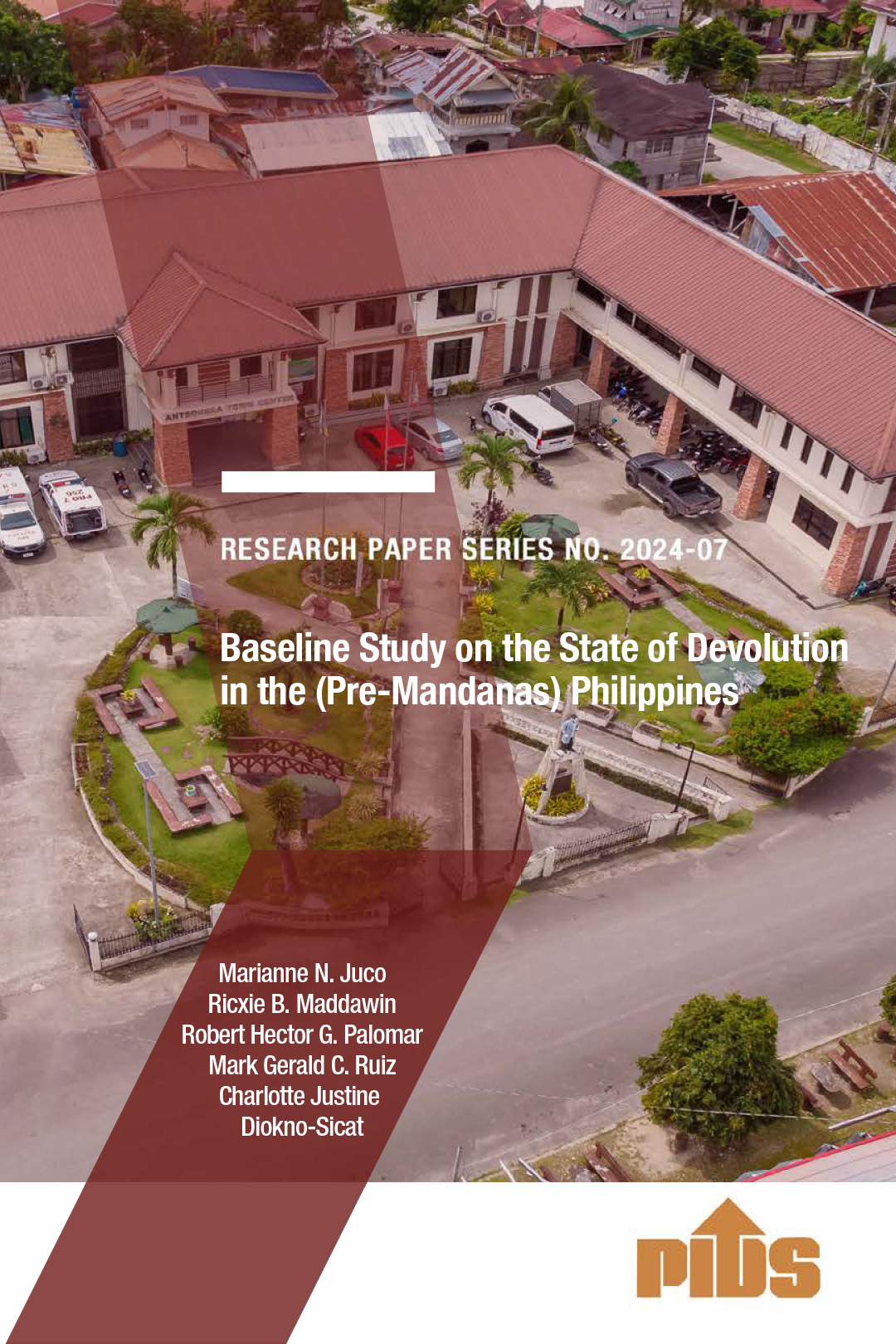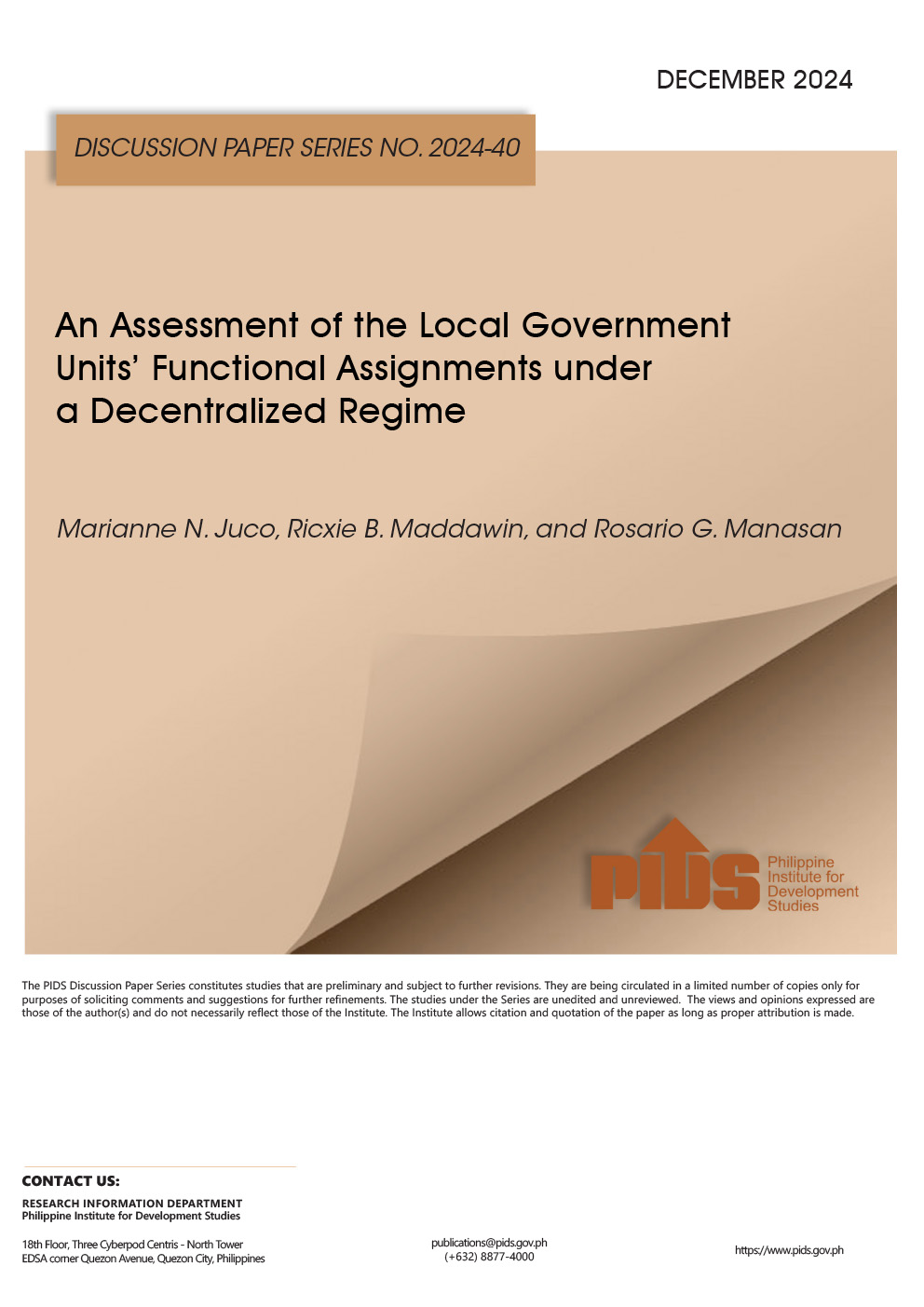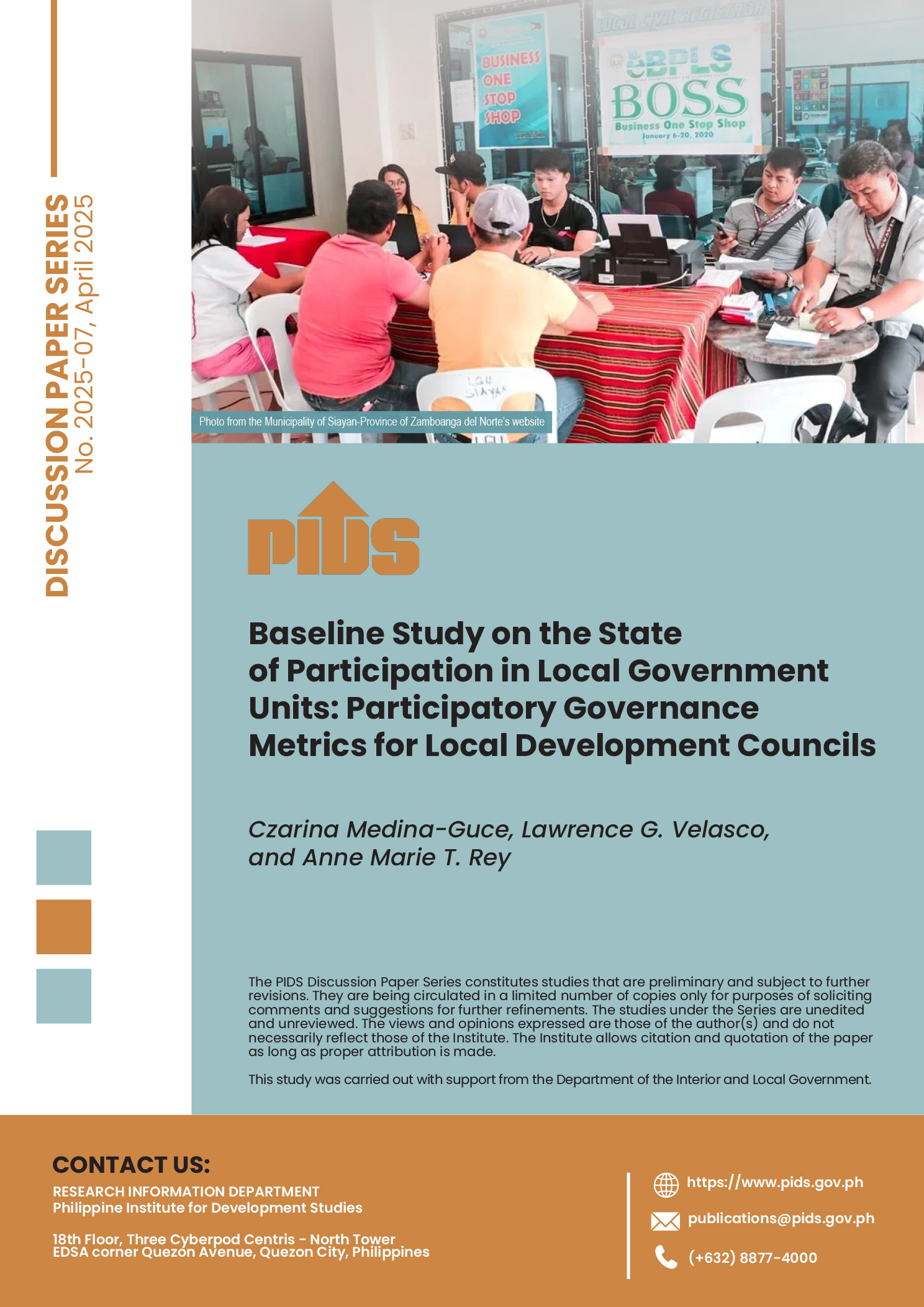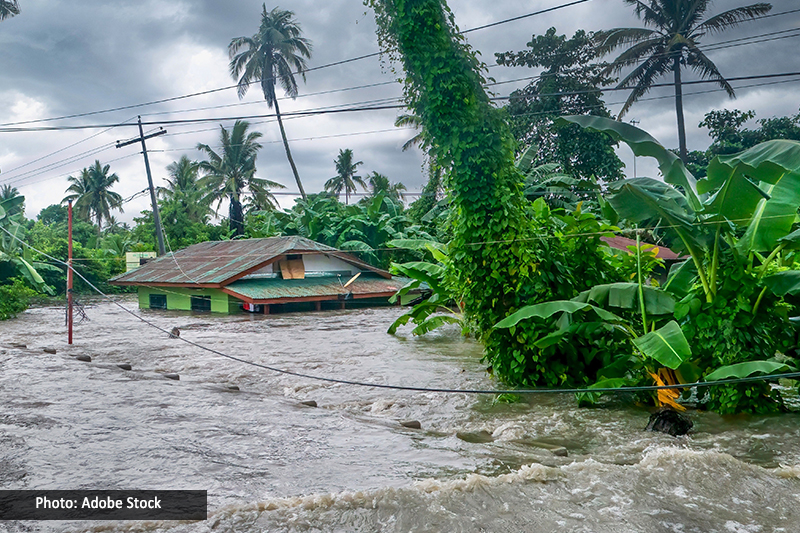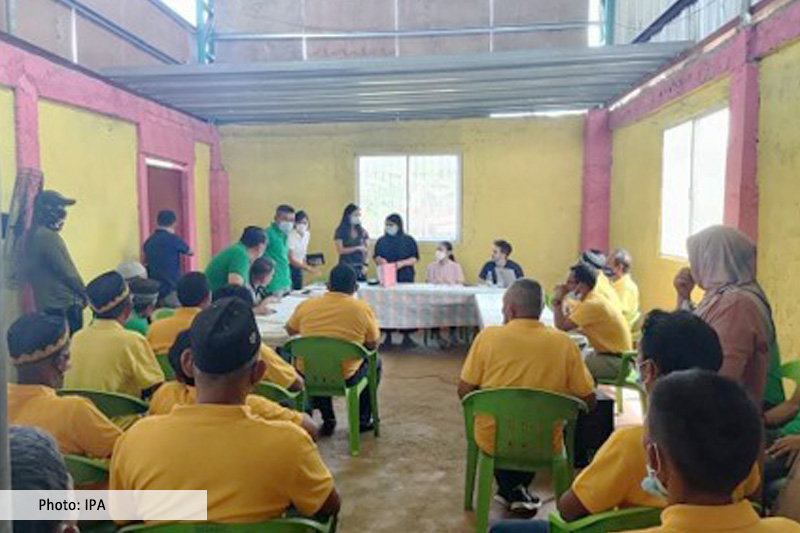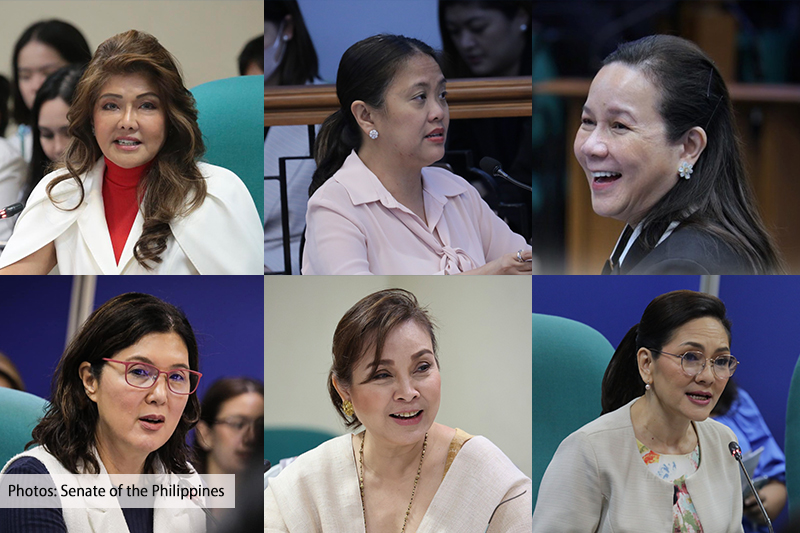The Aquino administration through the Human Development and Poverty Reduction Cluster and Good Governance and Anti-Corruption Cluster launched the bottom-up budgeting (BUB) exercise in 2012 in time for the preparation of the 2013 National Expenditure Program. The BUB process is one of the major reform initiatives of the Aquino administration and has been tagged as such from several perspectives. Previous studies of the BUB program focused on the process rather than the results/outcomes of the BUB. In contrast to the previous assessment of the BUB, this study aims to assess the results/outcomes of the BUB in terms of: (i) how well the poverty alleviation objective of the BUB has been addressed and (ii) how well the BUB contributed to the strengthening of social capital.
Assessing the poverty alleviation aspect of the BUB through a comparison of per capita incomes using the Family Income and Expenditure Survey revealed that the BUB is not associated with greater increase in per capita household income at the provincial level. However, the household respondents had positive perception of the BUB projects implemented in their communities in terms of having directly benefited from the projects. In particular, respondents noted improvement in their access to transport services and water and sanitation through the BUB projects. Among the civil society organizations (CSOs), the overall sentiment toward the BUB is one of enthusiasm and optimism. The BUB process helped ensure broader and more inclusive CSO participation, particularly in local government unit (LGU) planning and budgeting. BUB is also seen as an avenue for CSOs to identify government projects that will improve their lives and to be more active in LGU affairs, thus becoming more empowered.

